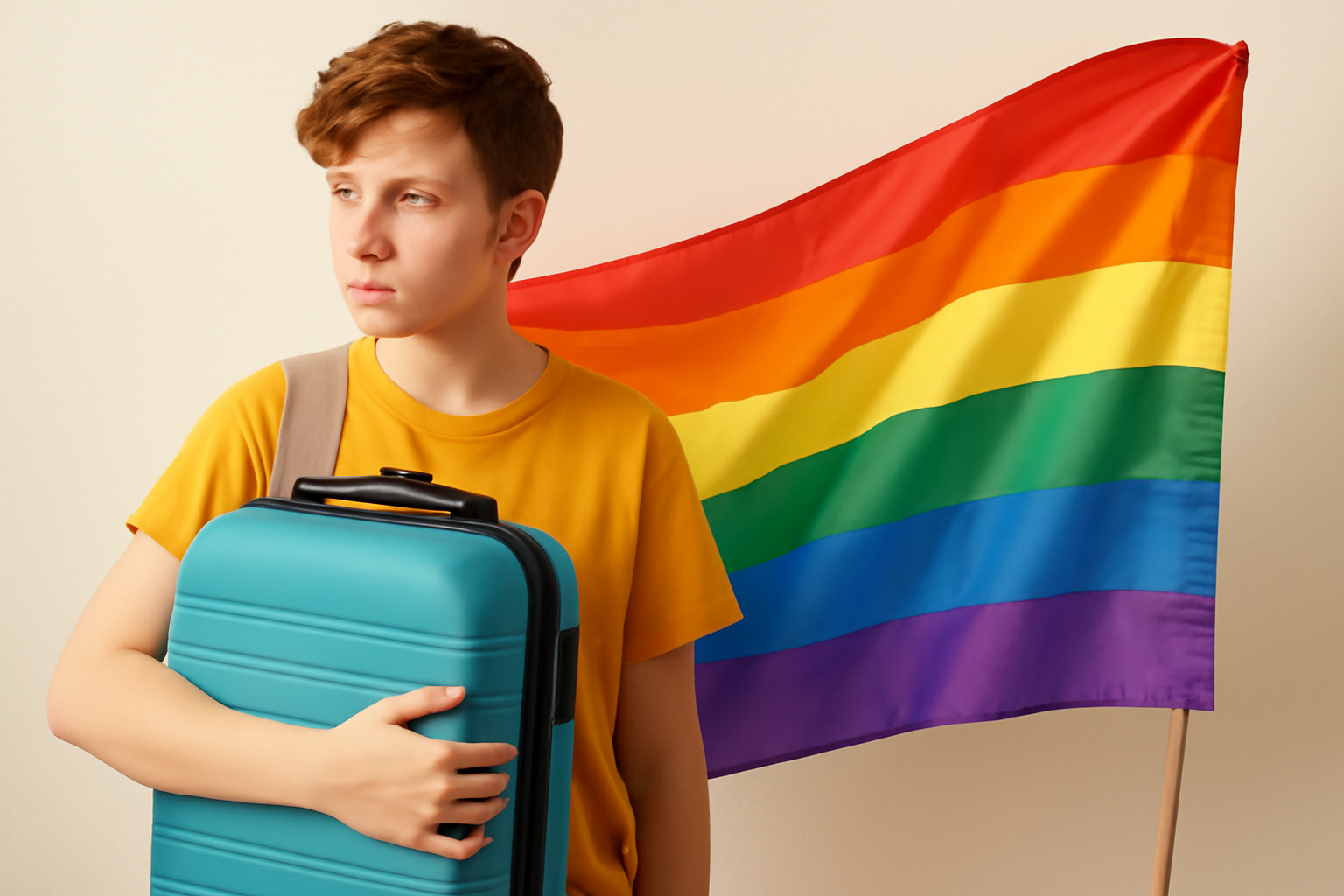
In recent years, a growing body of research has highlighted the impact of state-level policies on the decisions of LGBTQ+ individuals, particularly the younger demographic, to relocate. A recent study sheds light on how anti-LGBTQ+ policies at the state level are influencing young people to either move away or consider relocating to more inclusive environments.
The Influence of State Policies
State policies can significantly affect the quality of life for LGBTQ+ individuals. In regions where anti-LGBTQ+ sentiments are codified into law, many young people feel marginalized and unwelcome. This was evident in the study, which surveyed hundreds of young LGBTQ+ individuals across various states. The findings suggest that discriminatory state policies are not only a source of distress but also a catalyst for relocation.
These policies include restrictions on gender-affirming healthcare, limitations on LGBTQ+ educational content in schools, and laws that permit discrimination based on sexual orientation or gender identity. For young people who are coming to terms with their identities, living in a state that actively promotes policies that negate their existence can be deeply troubling.
Personal Accounts of Young Individuals
Many young LGBTQ+ individuals shared their experiences and the struggles they face in states with anti-LGBTQ+ policies. For instance, Alex, a 19-year-old non-binary person from a state with restrictive laws, expressed how these policies have impacted their mental health. "Living in a place where the government doesn't acknowledge or protect my rights feels like I'm not welcome here," Alex stated. This sentiment is echoed by many others who participated in the study.
The study also highlighted the stories of those who have already moved. Jamie, a 22-year-old trans woman, relocated from a state with several anti-trans laws to a more accepting environment. "Moving was a difficult decision, but it was necessary for my well-being. I needed to live in a place where I felt safe and accepted," Jamie recounted.
The Decision to Move
The decision to move is not taken lightly. For many young people, it means leaving behind family, friends, and familiar surroundings. However, the need for a supportive and affirming environment often outweighs these challenges. The study found that many LGBTQ+ youth are considering relocation as a viable option to lead a more authentic life.
In addition to mental health concerns, the study highlights the economic implications of relocation. Moving to another state can be financially burdensome, especially for young people who are often just starting their careers or higher education. Despite these challenges, the desire to live in a supportive environment is a powerful motivator.
The Role of Supportive States
Conversely, states with inclusive policies are seeing an influx of LGBTQ+ individuals. These states not only promote equality through legislation but also foster communities that are welcoming and supportive. Cities that have enacted ordinances to protect LGBTQ+ rights are becoming safe havens for those seeking acceptance.
The study found that places with comprehensive non-discrimination laws, access to gender-affirming healthcare, and inclusive educational policies attract LGBTQ+ youth. These states are often characterized by vibrant LGBTQ+ communities that provide the support and resources necessary for young individuals to thrive.
Looking to the Future
As the national conversation around LGBTQ+ rights continues to evolve, the impact of state policies will remain a critical factor in the lives of young LGBTQ+ individuals. Advocacy groups and community organizations play a vital role in supporting those affected by discriminatory legislation. Through outreach and education, these groups help young people navigate their options and find communities where they can flourish.
The findings of this study underscore the importance of creating inclusive environments at the state level. By acknowledging the needs and rights of LGBTQ+ individuals, states can foster communities that are not only diverse but also resilient and thriving.
In conclusion, the decision of LGBTQ+ youth to relocate is deeply intertwined with the policies of their home states. For many, moving represents a pathway to safety, acceptance, and the opportunity to lead a fulfilled life. As awareness of these issues grows, it is imperative for all states to consider the long-term impact of their policies on future generations.
Related Posts
Triumphant Trans Woman Wins Legal Battle and Inspires Others to Stand Up for Their Rights
Breaking new ground: a landmark victory in transgender rights After battling in courtrooms and enduring endless challenges, Diana Portillo, a transgender woman, has secured a monumental victory in her decade-long fight against workplace discrimination. The result? Nearly $1 million awarded in a historic settlement. But this isn't just a win on paper—it represents a powerful precedent in combati [...]
Pride Month in Latin America: Protests and Demands for Equality
**Celebrating Pride and advocating LGBTQ+ rights in Latin America** Pride Month in Latin America was a lively mix where celebration met activism. Communities united, not just throwing a party but making a stand—demanding equality and pushing governments toward better protection and rights recognition. Throughout Latin America, pride events erupted in marches and cultural displays, each with a c [...]
Transgender Erasure Actions Implemented by National Park Service
```html Trump administration's impact on national park service and transgender recognition The Trump administration made notable moves in undermining transgender representation, which included directing agencies like National Park Service not include "T" and "Q" when they refered “LGBTQ” in any official communication. This move seems part a broader plan by this administration aimed at reducin [...]